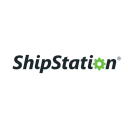How I Started A $8K/Month Delicious Food Supplements Brand
Note: This business is no longer running. It was started in and ended in 2025. Reason for closure: Shut down.
Hello! Who are you and what business did you start?
Hi, I’m Louise Hendon, and I’m the CEO and owner of CoBionic. One of our flagship products is delicious chocolate collagen that’s sugar-free and dairy-free. When you add hot water to it, it turns into a yummy hot chocolate that’s good for your skin and joints. That’s why we named the product Indulgence Chocolate Collagen.

This is by far my favorite product as it helps keep my skin, hair, and nails vibrant but tastes like an indulgent chocolate treat!
And our philosophy for the company is really about creating healthy foods and supplements that also taste outstanding. We have 2 other flagship products that were also created for both taste and effectiveness:
- A sugar-free,...
Sorry, you need to login and/or become a member to view the rest of this content.
More Business Ideas Like This
















